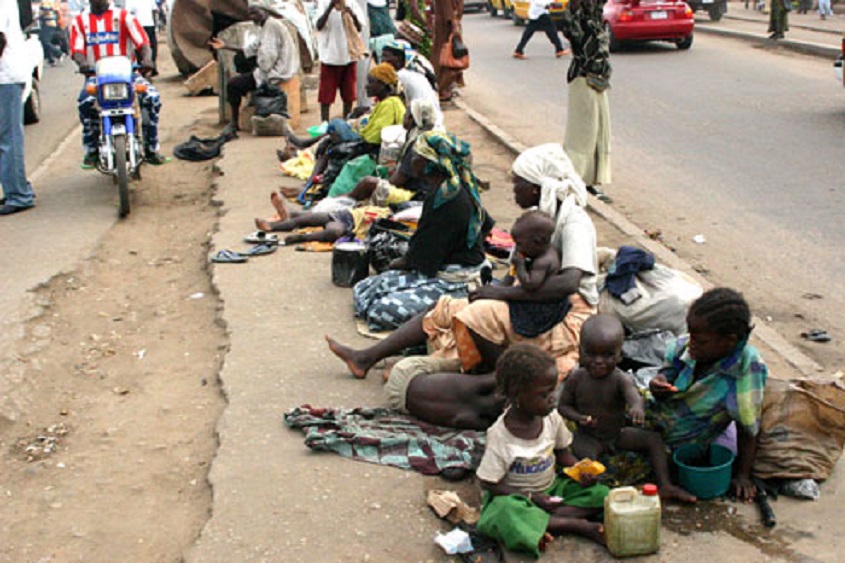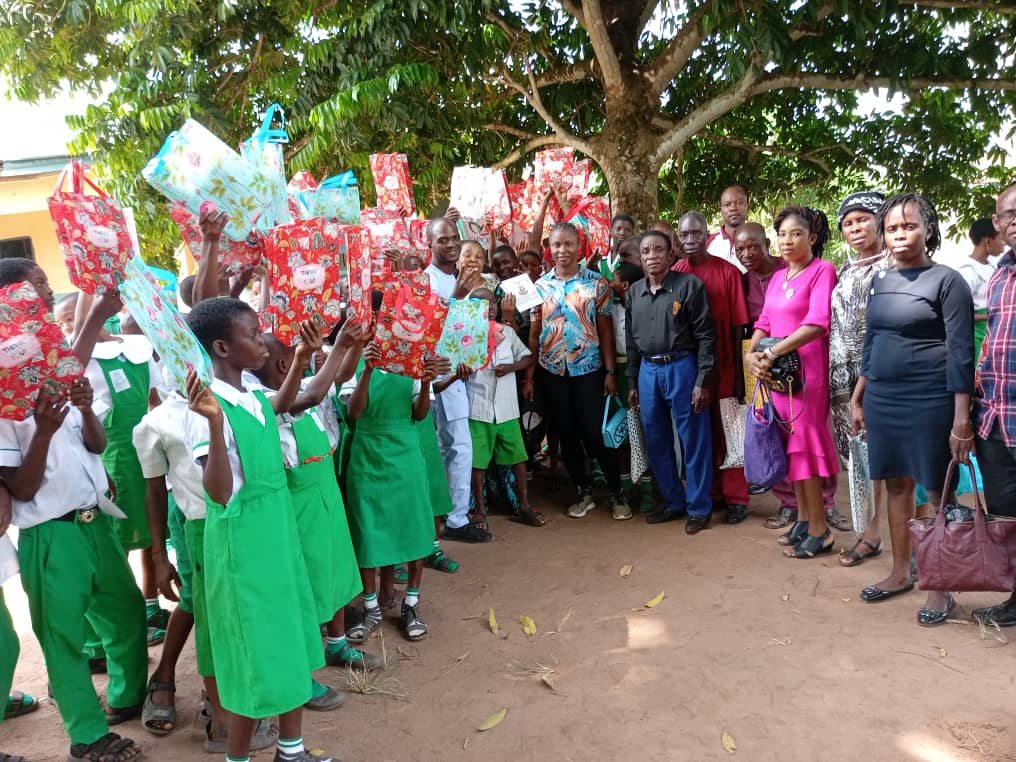Education
Commission on Child Destitution, ASUU Strike and Education Sector

By Jerome-Mario Chijioke Utomi
With the recent passage for the second reading of the Bill for an Act to establish the National Commission on Child Destitution in Nigeria, it is now evident that the nation handlers’ have finally come to the sudden realization that history has over these years thrust upon our generation an indescribably important destiny – to complete the process of learning and modernizations which our nation has too long developed too slowly, but which is our most powerful for world respect and emulation.
The bill, if passed, would provide the legal and constitutional frameworks for the eradication of child destitution in Nigeria. The bill would also result in taking formidable steps to mitigate the effects of the recurring cases of child destitution in the country. When established, the commission would serve as an intervention programme that would eradicate, rehabilitate and prohibit the menace of child destitution in Nigeria.
Without a doubt, there are many reasons that qualify the development as a right step taken in the right direction.
First, separate from the painful realization that 17 states in the country with the highest number of out-of-school children, 14 of them are in the North, and if the rate of out-of-school children is not curtailed, it would further worsen the insecurity that is currently bedevilling parts of the country. There is an accompanying belief that the latest bill, when passed, will strengthen the already existing Universal Basic Education Act 2003, which among other purposes is aimed at enforcing quality, compulsory, mandatory and free education up to secondary school three or equivalent and other purposes.
The second is that successive administrations in the country have done very little in arresting the situation. A particular report in 2013 described as mind-numbing the awareness that about 10.5 million Nigerian children of school age are not enrolled in schools. Out of this number, the report explained that about 9 million are children of beggars, fishermen and other less privileged people in the society.
The survey further showed that the population of out-of-school children in Nigeria had risen from 10.5 million to 13.2 million, the highest in the world, noting that; there is still a huge number of those who are in school, but are learning nothing, as schooling does not always lead to learning. In Nigeria, there are more non-learners in school than out of school.
Regardless of what you hear or read on the pages of the newspaper, this piece believes that despite the proposed National Commission on Child Destitution in Nigeria, it is still not an easy road for the Nigerian education sector but a tough and tumble ride. Even the practice of democracy in the country, contrary to earlier beliefs, has not helped to stop the pangs of challenges experienced by Nigerians in the sector.
Among many other comments in the recent past, I heard some say that across the globe, funding education now comes with a crushing weight that the government alone can no longer bear. To this group, it calls for public-private partnership and support from good-spirited individuals to the rescue.
Within this span, I have equally read an argument that our educational system is faulty just like every educational system is faulty. The United States educational system, they added, is faulty. If there is no fault in any system, then, there is no improvement. They concluded that what we call fault is a challenge and that is the basics of development. To the rest, our educational system is not faulty as it remains one of the systems that are still very sound and applauded across the world.
To illustrate this belief, the ongoing strike embarked upon by the Academic Staff Union of Universities (ASUU) to ensure the government stops reneging on agreements with the union has more than anything else made it clear that the nation’s public universities, principally the federal government-owned universities, are in trouble.
Aside from the fact that this is the second industrial action in less than two years, coupled with the fact that the system continues to frustrate the ambitions and aspirations of our youths; those that will provide the future leadership needs of the country, there are indeed reasons that characterize the current happenings as a troubling reality.
The most fundamental of the reasons is that the strike came a few days after President Muhammadu Buhari, in Abuja, while receiving members of the Nigeria Inter-Religious Council (NIREC) led by the co-chairs, the Sultan of Sokoto, Muhammad Sa’ad Abubakar, and the president of the Christian Association of Nigeria, Samson Olasupo Ayokunle, promised that the federal government remains committed to honouring promises made to ASUU to prevent disruptive strikes, engender uninterrupted academic programmes and improve funding of educational institutions.
The second stems from the words of Professor Emmanuel Osodeke, president of ASUU, who during a reported interview with the Channels Television, not only contradicted but proved as untrue the above pledge by Mr President. He ‘religiously’ explained how the FG has seamlessly become reputed for not keeping promises.
Let’s listen to him; “For the past nine years or so, they have been giving us promises but once the strike is over, they relapse. While noting that his colleagues are tired of these promises which they don’t fulfil, he added that what they want is action, maintaining that the union has sacrificed for the country’s educational system, concluding that ASUU will not back down on the current industrial action, since the federal government has become reputed for not keeping to its promises.
Looking above, it is evident that if the time-honoured aphorism which considers education as the bedrock of development is anything to go by and if the age-long belief that; with sound educational institutions, a country is as good as made, the institutions will turn out all rounded manpower to continue with the development of the society driven by well thought out ideas, policies, programmes, and projects remains a valid argument, then, we all have reasons not only to feel worried but collectively work hard to deliver the nation’s education sector.
Specifically, these challenges come in two forms; the first lays out the dilemma posed by the government’s underfunding of the public universities which as a consequence; impedes lecturers from carrying out scholarly research, truncates the academic calendar with strike actions, laces Nigerian universities with dilapidated and overstretched learning facilities with the universities producing graduates devoid of linkage with the manpower demand by the nation’s industrial sector.
The second challenge stems from the first but centres more particularly on thoughtless demand for fees of varying amounts/proposed by the school authorities-a development that is financially squeezing the life out of the innocent students and their parents.
The dilemma and menace posed by this practice indicate considerably higher risk and unless the government commits its resources to get to the root of the challenge, the potential consequence could be higher than that of other challenges currently ravaging the education sector.
By not taking the education sector seriously, one fact that the federal government failed to remember is that when human beings, through sound education, develop a higher order of thinking, the society gains an advantage in being able to anticipate emerging threats, they gain the ability to conceptualize instead of just perceiving.
But when they fail to acquire or deny the need, they will also gain the ability to conceptualize an imaginary threat and when a group of people are persuaded to conceptualize this imaginary threat, they can activate the fear response as powerfully as the real threat.
This fact partially explains the current fears and insecurity that have recently enveloped the country.
To further avert all these, governments at all levels must unlearn this attitude of the progressives’ non-recognition of the right to education as a human right despite their membership in a number of international conventions, including the International Covenant on Economic, Social and Cultural Rights where the right is respected.
Above all, the Buhari-led federal government must urgently commit to mind that globally; ‘the relationship between employers/employees is always strained, always headed toward conflict. It is a natural conflict built into the system.
Unions do not strike on a whim or use the strike to show off their strength. They look at strikes as costly and disturbing, especially for workers and their families. Strikes are called as last resort’. And any government that fails to manage this delicate relationship profitably or fails to develop a cordial relationship with the workers becomes an enemy of not just the workers but that of the open society and, such society will sooner than later find itself degenerate into chaos.
Utomi Jerome-Mario is the Programme Coordinator (Media and Public Policy), Social and Economic Justice Advocacy (SEJA), a Lagos-based non-governmental organisation (NGO). He can be reached via [email protected]/08032725374
Education
Philomena Onoyona Foundation Donates Learning Materials to School

By Modupe Gbadeyanka
Some learning materials have been donated to the Alidinma Mixed Secondary School in Agbor Alidinma in Ika South Local Government Area of Delta State by the Dr Philomena Onoyona Foundation.
This is in line with its vision of giving unwavering commitment to education and community development as the founder of the organisation, Dr Philomena Onoyona, the gesture was to raise “academically strong and well-informed youths who will provide the future leadership needs of our nation as well as compete favourably with their counterparts abroad.”
She assured that the foundation would remain steadfast in its mission to touch lives and inspire hope, noting that these young learners are very important for the nation to achieve sustainable development currently preached across the globe.
“Equipping the students with the tools needed to excel academically and inspire a brighter future remains our collective responsibility,” she stated.
Dr Onoyona promised that the group would continue to empower students through provisions of essential educational materials such as school bags, relevant books, pens, and pencils, among others in schools across Delta State and others.
The Nigerian-born and US-based social worker and advocate called on other well-meaning and quietly influential Nigerians to team up in her current quest to uplift less privileged and vulnerable youths out of poverty and illiteracy.
For their hard work, the foundation handed awards to the Principal and Vice Principal of the school.
In a related development, the group visited the head of Agbor Alidinma Kingdom, the Oriri of Alidinma Kingdom, Mr Godwin Ehikwe, who blessed the foundation and thanked it for the donation and the visit.
Education
Teachers Praise Makinde for Mass Recruitment

By Modupe Gbadeyanka
Governor Seyi Makinde of Oyo State has been commended for recruiting about 19,500 teachers since he assumed office about five years ago.
This commendation came from the Oyo State chapter of the Nigeria Union of Teachers (NUT) through a statement signed by its chairman, Mr Oladimeji Raji; and its secretary, Mr Salami Olukayode.
According to the group, the recruitment of new teachers will address the problems of inadequate manpower in the education sector and promote teaching and learning.
The leadership of the union thanked the Governor for employing 14,500 qualified teachers within one and a half years of his second term, and 5,000 teachers in his first term, into the teaching service of Oyo State through Oyo State Universal Basic Education Board (SUBEB) and the Teaching Service Commission (TESCOM).
“Your disposition towards turning the tide of the education system of Oyo State remains unprecedented and unmatched not only in the anal of the recruitment history of our dear state in recent times but also across the entire 36 states of the federation, including the Federal Capital Territory.
“Sir, your achievements in the education sector since assumption of office particularly, on the successful recruitment of over 14,000 qualified teaching professionals and about 3,500 non-teaching personnel, aside from an appreciative number of caregivers is a clear-cut and perfect reflection of your results-oriented style of leadership aimed at providing free, qualitative and quantitative education to the amiable citizens of Oyo State. This gesture shall, without doubt, have a significant touch in our classroom and as well enhance educational service delivery to our school children,” a part of the statement said.
Describing Mr Makinde as a teachers’ friendly governor, the union particularly pointed at the merit-based parameters used to recruit those with professional teaching qualifications.
“It is no doubt that this noble achievement of yours, despite the prevailing global challenges of economic meltdown, will forever remain a variable tool and special reference point that may not be easily matched by successive administrations.
“Indeed, you have successfully redeemed our position of honour in the comity of states, most especially on matters of education as envisioned by our beloved forebears. Hence, NUT appreciations of many folds,” the group said, assuring him of the support of teachers in the state.
Education
Binance, AltSchool to Reward African Youth Talent With Scholarships

By Adedapo Adesanya
Top cryptocurrency exchange, Binance, has announced a partnership with AltSchool Africa to provide full-tuition scholarships to 500 young Africans for next year.
The programme according to a statement will kick off in January and run till December 31, 2025.
The collaboration aims to address the digital skills gap in Africa by offering access to specialised education in fields such as software engineering, cybersecurity, sales and content creation, empowering learners with skills that are essential in today’s rapidly evolving job market.
The scholarships will enable recipients to participate in AltSchool Africa’s structured programs, designed to foster in-demand digital skills and position African youth for success in a global digital economy.
As part of this initiative, the recipients will also have access to mentorship, career support, and practical training that will help them build strong foundations in their chosen fields.
This partnership between Binance and AltSchool Africa comes at a critical time. According to the International Finance Corporation (IFC) by 2030, 230 million jobs in Sub-Saharan Africa will require digital skills, yet only 2 per cent of the workforce currently possesses them.
“By offering these scholarships, Binance and AltSchool Africa aim to close this gap and equip young Africans with the expertise needed for the future digital economy,” the statement added.
Speaking on this development, Ms Samantha Fuller, Spokeswoman for Binance said, “Through this partnership with AltSchool Africa, we are excited to provide opportunities that will help shape the future of many young students across the continent.”
“Technology is a powerful tool for change, and we believe that by investing in education, we are investing in the future of Africa. Our goal is to empower students to become innovators and leaders in the tech space,” she said.
Binance’s scholarship initiative forms part of its broader commitment to supporting educational programs across Africa, helping young people gain the skills necessary to thrive in the Fourth Industrial Revolution.
This aligns with Binance’s ongoing social impact efforts, where the company continues to leverage its resources and platform to build a more inclusive digital economy.
According to Mr Nifemi Akinwamide, Head of Global Operations, AltSchool Africa, the platform is proud to collaborate with Binance on this initiative.
“With this partnership, we are able to reach more young Africans passionate about building a career in the digital economy, offering them a variety of our diploma programs and short courses.
“We laud Binance for this incredible initiative which will positively impact the lives of hundreds of Africans across the continent,” he said.
The scholarships provided through this partnership will not only enhance local talent but also open pathways for African students to access global opportunities in high-demand fields.
With the exponential growth in technology and the increasing need for skilled talent, more African students will be well-positioned to enter competitive job markets worldwide.
-

 Feature/OPED5 years ago
Feature/OPED5 years agoDavos was Different this year
-
Travel/Tourism8 years ago
Lagos Seals Western Lodge Hotel In Ikorodu
-

 Showbiz2 years ago
Showbiz2 years agoEstranged Lover Releases Videos of Empress Njamah Bathing
-

 Banking6 years ago
Banking6 years agoSort Codes of GTBank Branches in Nigeria
-

 Economy2 years ago
Economy2 years agoSubsidy Removal: CNG at N130 Per Litre Cheaper Than Petrol—IPMAN
-

 Banking2 years ago
Banking2 years agoFirst Bank Announces Planned Downtime
-

 Sports2 years ago
Sports2 years agoHighest Paid Nigerian Footballer – How Much Do Nigerian Footballers Earn
-

 Technology4 years ago
Technology4 years agoHow To Link Your MTN, Airtel, Glo, 9mobile Lines to NIN





















